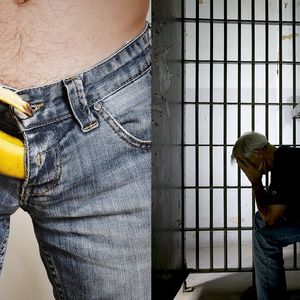A man convicted
of the deadly beating that prompted Connecticut's
hate-crimes law sobbed Thursday as he asked for forgiveness
from the victim's family.
Sean Burke, 35, was in Manchester superior court
seeking a reduction of his 40-year prison sentence for
taking part in the fatal beating of Richard Reihl, a
gay man, in 1988. "I beg for your forgiveness," Burke
told Reihl's siblings Thursday. "I don't care about the
time. I just beg for your forgiveness. My soul, your
honor, it's empty, and I want to use my life for the
reparation of Richard's life."
Burke, who pleaded guilty to murder and other
charges, is seeking a "sentence modification" under a
little-used law that allows a judge to reopen the case
if both the prosecution and defense attorneys agree to
a hearing.
Burke had asked for the hearing based on a memo
that then-prosecutor Kevin McMahon, now a superior
court judge, wrote after Burke was originally
sentenced in 1989. In it McMahon said he would support
another look at Burke's 40-year sentence if Burke
could prove that he was not a hardened criminal.
Judge Raymond Norko, who issued the original
sentence in 1989, agreed to hold the hearing. He asked
prosecutors if they could recall a similar case, and
they could not. Norko did not say when he would rule on
Burke's request. He asked both sides to submit written
arguments on application of the sentence modification
law by December 2.
Burke and a friend, Marcos Perez, were convicted
in 1989, when they were teenagers. Perez, who is
serving a 35-year sentence, had his request for a
reduction hearing denied. Prosecutors said Reihl met the two
at a gay bar and invited them to his Wethersfield
home. They bound his mouth with duct tape and beat him
to death with a fireplace log.
Friends and prison counselors described Burke as
a model inmate who has sought redemption since the day
he was sentenced to prison, literally becoming an
altar boy and counseling children and others. Those who
spoke on his behalf included Bill Cannon, a gay man
who said he was once thrown into a ravine in Idaho and
left to die. Cannon developed a relationship with
Burke after writing him a hate-filled letter following
Burke's conviction.
Instead of finding an evil homophobe, he said he
found a remorseful and scared young man. "I learned
that no one has a monopoly on hate," he said. "Without
hesitation, I would welcome Sean into my home."
But Reihl's family asked the judge not to
reconsider Burke's sentence, saying it would send an
inconceivable message about the tolerance for hate
crimes. "This was the hate crime," Robert
Reihl, the victim's brother, pointed out.
Hartford state attorney Jim Thomas also opposed
a sentence reduction, saying that nothing Burke has
done to rehabilitate himself in prison warrants a
sentence reduction. "One of the purposes of sentencing is
also punishment," he pointed out.
Former state lawmaker Miles Rapoport, who
cosponsored the hate-crimes legislation that took
effect in 1990, said Thursday that Reihl's death was
the catalyst. "This murder struck huge fear into the gay
community in Hartford," he said. "Seventeen years ago, there
was a great deal less acceptance of homosexuality, and
tolerance was not necessarily presumed. People were
frightened, people were deeply concerned, and they
wanted legislative action." (AP)


















































































